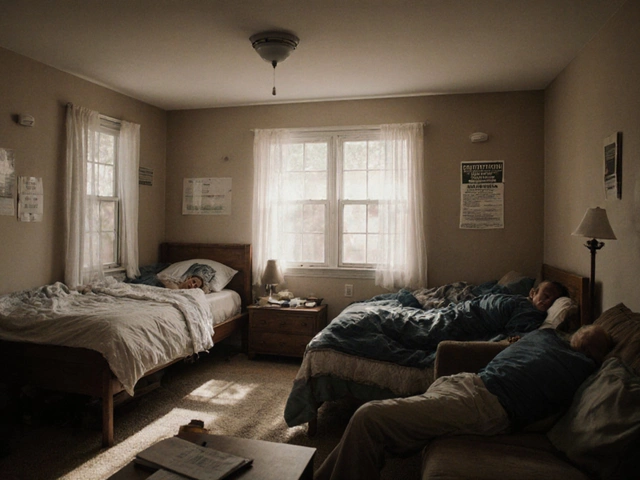How to Be a Landlord in Virginia: VA Rental Laws & Tips

Owning rental property in Virginia should come with a warning: your first tenant might leave you pacing your kitchen wondering if you’ve made a huge mistake. Virginia’s rental market has exploded over the past decade, with cities like Richmond, Arlington, and Virginia Beach seeing population booms and rising housing demand. The catch? Lawmakers tinker with rental rules just enough to keep even veteran landlords up late reading legal updates. But if you play your cards right, being a landlord in VA can mean solid passive income and a surprising number of tax breaks. But there’s a lot more to it than just collecting monthly rent.
Understanding Virginia’s Rental Laws and Landlord Rights
If you’ve ever joked that landlords are “the bad guys,” Virginia’s legal landscape can feel like a tightrope walk. The Virginia Residential Landlord and Tenant Act (VRLTA) rules much of what you can and can’t do—think of it as a landlord’s bible. This act applies to most standard non-commercial rentals, except when you’re renting ten or fewer units outside a metropolitan area. If you own a quirky old farmhouse in the country, you might be exempt, but for almost everyone else, the VRLTA sets the terms.
Leases are your first battlefield. Even a handshake agreement is a legally binding lease in Virginia, but always demand it on paper. That lease lays out the nitty-gritty: rent due dates, specific pet rules (can you guess how many times my cat Mia’s offspring almost won pet deposits wars?), late fees, and exactly how you’ll handle property disasters. Virginia law gives you exact limits on fees: late charges must be no more than 10% of the monthly rent or the actual amount past due, whichever is less. If you run into tenant disagreements later on, the lease is what the courts will check.
Security deposits are capped in VA at two months’ rent, and you’re required to return deposits (minus deductions) within 45 days of the lease ending. Don’t slack off here or a small claims court date might sneak into your calendar. Document the unit’s condition meticulously—with photos, written notes, and even timestamps. VRLTA expects landlords to keep rentals safe and habitable: working heat and cooling, hot water, locking doors, and no moldy basements. If a tenant files a complaint with code enforcement, expect an inspector visit. Failing to handle major repairs quickly? The court can let tenants pay for repairs and deduct the cost from their rent, or even break the lease scot-free. That’s a rule that’s tripped up plenty of new landlords.
The eviction process in Virginia has its own dance moves. You must give a written notice: five days for nonpayment of rent or 21/30 days for most rule violations (with a grace period for the tenant to fix the problem). You can’t just change the locks—only the sheriff can. Judges want to see a paper trail: the signed lease, late payment notices, and all correspondence. Speed, transparency, and a cool head are your friends if an eviction becomes necessary. And in 2021, the state added a new layer: tenants now have legal access to rent relief programs, so evictions for nonpayment may be paused if someone’s pursuing aid.
Screening Tenants: Secrets to Finding (and Keeping) Good Renters
Want to avoid endless repair calls and awkward conversations? It all starts when you screen tenants. In Virginia, you’re free to run background checks, but you must comply with the federal Fair Housing Act and the Virginia Fair Housing Law—discrimination based on race, color, national origin, religion, sex, familial status, disability, source of income, sexual orientation, and gender identity is absolutely off limits. But you’re still allowed to check credit history, rental track record, and eviction reports.
An application fee in VA is limited to $50 for each applicant—nonrefundable, but smart landlords only keep what covers the actual screening cost. Get written permission to run a credit check (it’s not just polite, it’s the law). Look out for red flags: a string of evictions, spotty payment records, or gaps in employment. But keep in mind, some applicants have faced tough times during recent layoffs or pandemic disruptions. Judge holistically; sometimes a personal reference from a past landlord tells you much more than a credit score ever could. You don’t have to shout this from the rooftops, but being upfront and professional goes a long way—word gets around in the renter community.
Calls for references are key, but don’t stop with the ones your applicant provides. If you want to get a real feel for a person, ask previous landlords directly about late rents, unresolved complaints, or property damage. One trick? Search court records in the local county for your applicant’s name—you’d be shocked what even a simple Google search can turn up. If you get a bad feeling, trust it, but make sure you can back up your decision on business grounds. Virginia law says you can reject an applicant for things like poor credit or insufficient income, but if they feel you discriminated based on a protected class, you might end up defending yourself to the Department of Housing and Urban Development.
Setting expectations in your very first meeting matters. Chat about what you expect as a landlord—keeping noise down after dark, quick reporting of leaks (before your hardwood floors warp beyond hope), and respect for neighbors’ parking spaces. Overcommunicate at the beginning and you’ll stress less once the property’s in someone else’s hands. I’ve learned the hard way: a detailed move-in checklist signed by both you and the tenant can prevent drama when someone moves out.

Setting Your Rent and Managing Finances Like a Pro
Wondering how people actually figure out what to charge for rent in Virginia? You could just check Craigslist or Zillow and copy-paste the going rate, but the smart approach looks deeper. Scope out actual local comps—apartments or houses in your neighborhood with similar square footage, number of bedrooms, and amenities. Fact: In Richmond, rents for a two-bedroom shot up more than 20% between 2020 and 2023, but an older house on the edge of town with creaky floors won’t fetch the same premium as a sparkling downtown penthouse with a river view. Add bonuses like in-unit laundry, off-street parking, or new appliances to justify prices at the higher end.
Virginia does not have statewide rent control, meaning you can raise the rent as you wish—just not in the middle of a lease, and you’ve got to give proper notice. For year-long leases, that means 30 days prior to lease renewal. Monthly tenants get at least 30 days’ written notice, too. Pro tip: If you want loyal tenants and less turnover, consider smaller annual increases instead of giant jumps. People talk, and good tenants often stick around if you treat them fairly. That’s the hidden secret of steady profits; no one tells you how expensive it is to clean and repaint a property between tenants, or how your time managing all the headaches quickly adds up. Even one missed month often wipes out most of a rent hike’s gains.
Tackling the money management side takes discipline. Keep rental payments and property-related expenses in a separate business account—it keeps your books clean and will save your skin at tax time. Virginia allows landlords to deduct plenty: mortgage interest, repairs (not upgrades!), property taxes, and even regular pest control. Major improvements—think new roofs, HVAC systems—are usually depreciated over years. Yes, it’s tedious, but missing deductions means money left in Uncle Sam’s pocket. If you’re managing rental units at scale, software like Buildium or AppFolio help track rent, late fees, expenses, and generate built-in reports for your accountant. Still old-school? A solid spreadsheet and Google Calendar reminders will save you, too.
Missing one rent payment won’t wreck your finances, but repeated headaches might. Always have a plan: Save at least two months’ worth of rent as an emergency fund and don’t rely on next month’s rent to pay this month’s mortgage. Some landlords in Virginia have started requiring renters insurance—it’s not required by law but protects both you and your tenant if things go sideways due to fire, floods, or wayward pets.
Handling Repairs, Maintenance, and Tenant Relationships
Wake up in the middle of the night to a call about a leaky pipe or broken AC? Welcome to the not-so-glamorous side of being a landlord. Virginia law is crystal clear: landlords must provide a safe, habitable home and make major repairs in a “reasonable time”—usually within 21 days or “as soon as possible” for emergencies (think broken heating in winter or an active leak). If you stall or delay, your tenant can report you and even pay for repairs directly, deducting the cost from rent after providing receipts and notice. That’s not something you want as your reputation can quickly sink—and negative reviews travel as fast as morning traffic out of downtown Arlington.
Routine maintenance shouldn’t be an afterthought. Schedule pest control, gutter cleaning, and yearly HVAC checks. A small up-front investment keeps appliances running longer and keeps you out of emergency repair mode. Keep a reliable list of tradespeople on hand: a plumber, electrician, and a general handyman you trust. You’ll build these connections over time, but don’t be afraid to call around and vet people with other local landlords first. It’s worth joining owner groups in your part of Virginia; people share tips, and the good contractors’ names get around fast.
If you want a calm relationship with your tenants, set up clear channels for communication. Use email, text, or a property management app—don’t rely on random phone calls you could miss while at your kid’s soccer game. When Griffin shattered our living room window with a stray cricket ball, you bet it was handled more quickly through a direct maintenance request than an angry voicemail. Document every repair, and share updates with your tenant about the status of work. This cuts down on frustration, especially if something takes time to fix due to shipping delays or contractor schedules.
Stick to the rules about entering a rented property. Virginia law requires that you give at least 24 hours’ notice (written, not just a knock on the door) unless it’s an emergency. If your tenant feels you’re barging in unannounced, things can get ugly, and a court might even consider it harassment. Strike a balance: be responsive without smothering your tenants or hovering on the property. Periodic inspections make sense, just don’t make them so frequent that your tenant never feels at home.
If things ever go sour and you’re heading toward an eviction, keep everything respectful and above board. Even great tenants can fall behind due to a lost job or family troubles. Virginia does offer local rental assistance programs, and sometimes a nudge toward those resources helps people get back on track—suddenly, that unpaid rent shows up after all, and you avoid the hassle of court. Evictions are never fun; avoid them if you can, but know the legal process inside and out so you don’t get burned if push comes to shove.

Modern Strategies and Pro Tips for VA Landlords
If you want to stay ahead in Virginia’s rental market, you can’t just stick to the basics. Technology is changing the game. Online rental portals let tenants apply, pay rent, and submit maintenance requests without endless paperwork or lost checks. If you’re managing more than one property or travel frequently, property management companies offer full-service help. For a cut of the rent—usually around 10%—they’ll handle tenant screening, repairs, and even court filings, leaving you free to focus on other things. If you’re not local to your units, or you’re juggling family, pets, and already-hectic schedules (ask Holly what it’s like when Shadow and Mia both see the pest guy at once), this option’s a lifesaver.
Savvy landlords watch upcoming legislation—some cities and counties tweak the rules constantly, especially on things like short-term rentals and local business licenses. Sign up for emails from the Virginia Realtors Association or check your city’s website for landlord-tenant news so nothing catches you off guard.
Market smart: great photos, honest listings, and fast responses make your rental stand out online. Don’t oversell—if there’s visible wear, call it “vintage charm” and set the price accordingly. Virtual tours are a huge selling point right now, since many renters want to see every little detail before committing. Set up an organized process for showings: back-to-back appointments minimize hassles and let you size up potential tenants efficiently.
If you rent furnished or short-term units—say, to government workers or traveling nurses—be clear about house rules, and make sure your insurance covers short-term guests. Many VA cities require business licenses and may tax short-term rental income. Keep all paperwork in order (leases, deposit forms, maintenance logs, communication), and make digital copies. The courts favor organized landlords when disputes pop up.
Read up on tax law: in some years, you can qualify for the federal “qualified business income” deduction, which slashes taxable rental profits by up to 20%. The state offers property tax credits in certain cities for energy-efficient upgrades, from new insulation to heat pumps. If you make energy updates, save receipts for every penny spent—these details matter during tax season.
Last thing: take care of your reputation. Most tenants these days research landlords before signing anything. Treat people decently, follow the law, keep your word, and good tenants will stick around—plus, you might even get some positive posts on local Facebook groups. Landlording’s not always glamour or easy money, but in Virginia’s busy, growing market, it can absolutely work—so long as you learn the rules, stay organized, and remember there’s a real person on both sides of the lease.









Write a comment